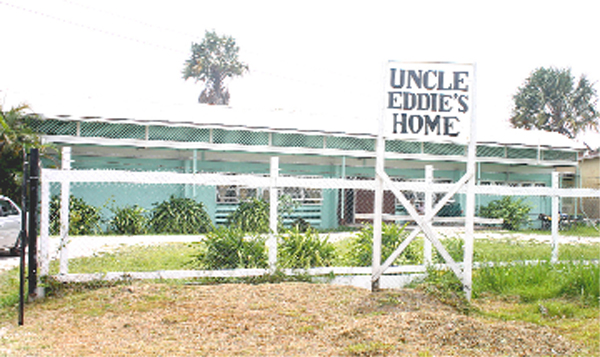With visits to nursing homes now restricted as part of the measures to protect residents from the novel coronavirus disease (COVID-19) infection, caregivers have turned to technology to ensure their elderly residents are not completely isolated.
As part of the emergency measures instituted to prevent the spread of COVID-19, a restriction has been placed on visitation to nursing homes, senior citizens’ homes and care facilities as the elderly are particularly vulnerable to the virus.
Stabroek News contacted several nursing homes/care facilities to determine how they were dealing with the restrictions and its impact on their residents.
A caregiver attached to Uncle Eddie’s Home, who identified herself only as “Ms. Miller,” told this newspaper that the staff was taking all the necessary precautions in order to prevent the spread of COVID-19. She mentioned that all staff members were equipped with coats and masks and while they were not allowing the residents to use face masks, their hygiene and the cleanliness of their surroundings have become a focus.
She noted also that members of the staff are interacting more with the residents, and there is an increase in the number of games being played. The Home, which receives supplies from different organisations, is in need of more sanitisers, she added.
At the Dharm Shala, the ‘Home of Benevolence for all Races,’ managing head Kella Ramsaroop explained that the television and the radio were being used more as a means of entertainment. She added that both staff and residents are equipped with face masks, and the able-bodied residents were restricted from leaving the facility.
However, her major concern was that a representative from the Ministry of Public Health has not yet reached out to the facility which is facing a shortage of medication for residents suffering from heart disease and diabetes.
Dr. Vivakeanand Bridgemohan, founder of the Demerara Paradise Nursing Home and Assisted Living Facility, said that they made the decision to lock down the facility weeks before the outbreak became known in Guyana and through the help of a case study decided that staff would stay in as opposed to returning daily. He added that to help residents curb the feelings of isolation, they are being allowed to use Skype to communicate with family members. Some relatives are also allowed to visit but at a designated area where there is no physical contact. He also mentioned that there has been an increase in activities, such as memory games, which have helped the residents.
Bridgemohan stated that his main concern was ensuring that all residents are protected and taken care of.
In a telephone interview, Enoch Gaskin, Chief Executive Officer of the Mercy Resident Care facility, related that they encourage cellphone contact. He noted that families are encouraged to leave the residents with a cellular phone so that at any given time they can make contact. He added that in instances when a resident does not have access to a cellular phone, a phone call is allowed. This, he said, was a good way to prevent isolation. In line with the main focus of the facility, which is to care for the needs of the residents, Gaskin added counselling sessions are being held at the convenience of the residents.
Viola Charles, a caregiver attached to St. Thomas More Men’s Hostel, said that since there are not many residents at the home, social distancing is easy to implement. Charles, who welcomed donations of face masks and hand sanitisers, noted that they have been ensuring that all surfaces are kept clean for the safety of all at the facility, while residents are restricted to two per table during meals time.
Meanwhile, Keisha Bowen, a caregiver attached to the Guyana Red Cross Children’s Convalescent Home, said that the organised setting was being used to keep structure within the home. The children are allowed to have television time, during which time they are entertained by the Guyana Learning Channel and cartoons. Staff members, who are taking precautions during the pandemic, are also using protective gear in the facility.
However, she noted that the home, which sources its supplies mainly through donations, is in need for more cleaning supplies (bleach, hand soap), as well as face masks and hand sanitisers.
Gladys Accra, head of Joshua House Children Centre, told the newspaper that the children are using this time to watch more television programmes. She related that it is difficult to have the children wear masks throughout the day, so she has been working on keeping them indoors rather than out.
Joshua House sources supplies from donors and is welcoming any that can be offered to assist in the safeguarding of the children.





